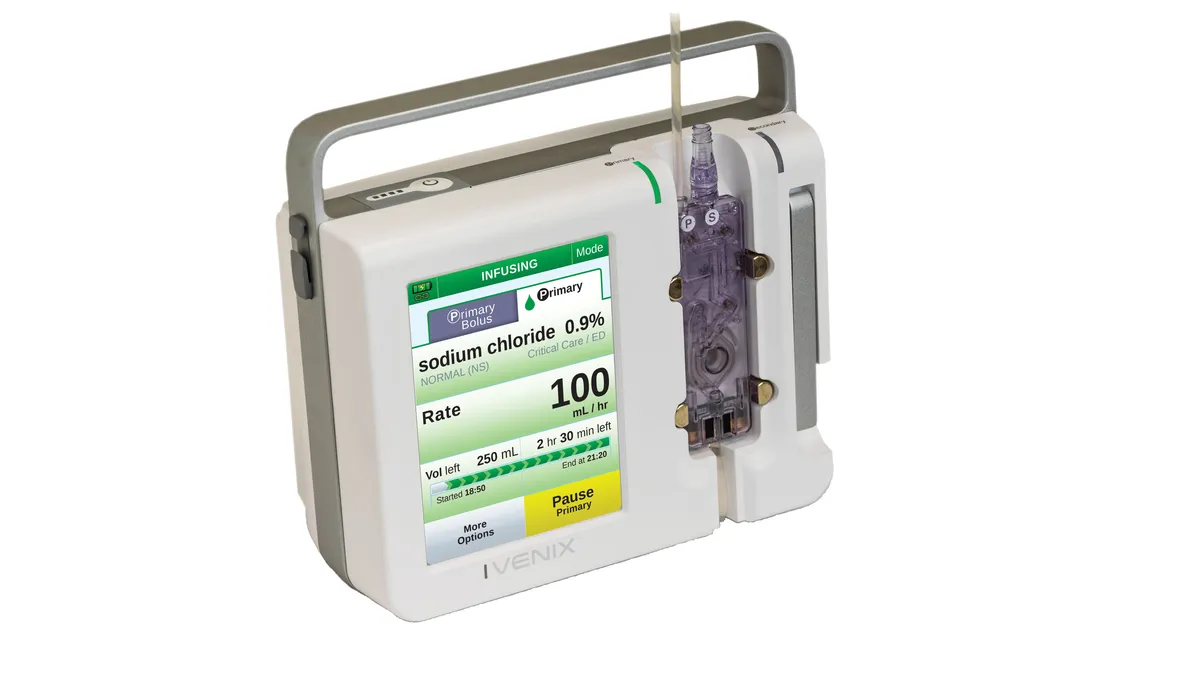Dive Brief:
- Fresenius Kabi warned healthcare providers in a Dec. 5 letter to stop using certain Ivenix large-volume pumps because of the risk that pneumatic valves installed in some devices could issue a pump alarm that could interrupt treatment. The subsidiary of Fresenius makes medicines and devices, and is separate from dialysis services provider Fresenius Medical Care, which spun out last year.
- The Food and Drug Administration issued a Wednesday notice about the problem. The notice was the first early alert sent by the agency, as part of a pilot program the FDA started last month to more quickly communicate recalls likely to be high risk.
- All devices with the affected valves should be removed from use and returned for repair, according to the FDA notice. Fresenius did not respond to a question by publication time about how many total devices were affected. The notice included a list of more than 1,500 serial numbers for affected devices.
Dive Insight:
The FDA rolled out its early alert program last month, with the goal of informing the public faster about device removals, corrections or updates to instructions due to potentially high safety risks.
The FDA’s latest alert about Fresenius’ recall came just six days after the manufacturer sent a letter to customers. In the past, it could take weeks or months for the agency to post a notice as it worked to classify a recall’s risk.
The early alert for Fresenius’ recall does not include a risk classification.
Fresenius’ Ivenix pumps are used in hospitals and outpatient settings to deliver fluids to patients, such as medications, red blood cells or plasma.
According to the notice, if a pneumatic valve fails, a pump problem alarm will be raised, which could potentially delay or interrupt therapy. In the worst case, delaying or interrupting a life-sustaining infusion could result in permanent disability or death.
Fresenius has not reported any injuries or deaths associated with the problem, according to the FDA notice.
Healthcare facilities should remove and isolate all affected devices if possible to prevent inadvertent use, according to the notice. If this is not possible, and the pump is being used to deliver life-sustaining medications, users should monitor patients closely and ensure an additional pump is available for situations where an infusion interruption could be dangerous.
Fresenius issued two Class I recalls of its Ivenix pumps this year because of a defect with primary administration sets that could cause uncontrolled medication flow and software anomalies that could cause alarms, nonfunctioning pumps or unresponsive screens during treatment.











